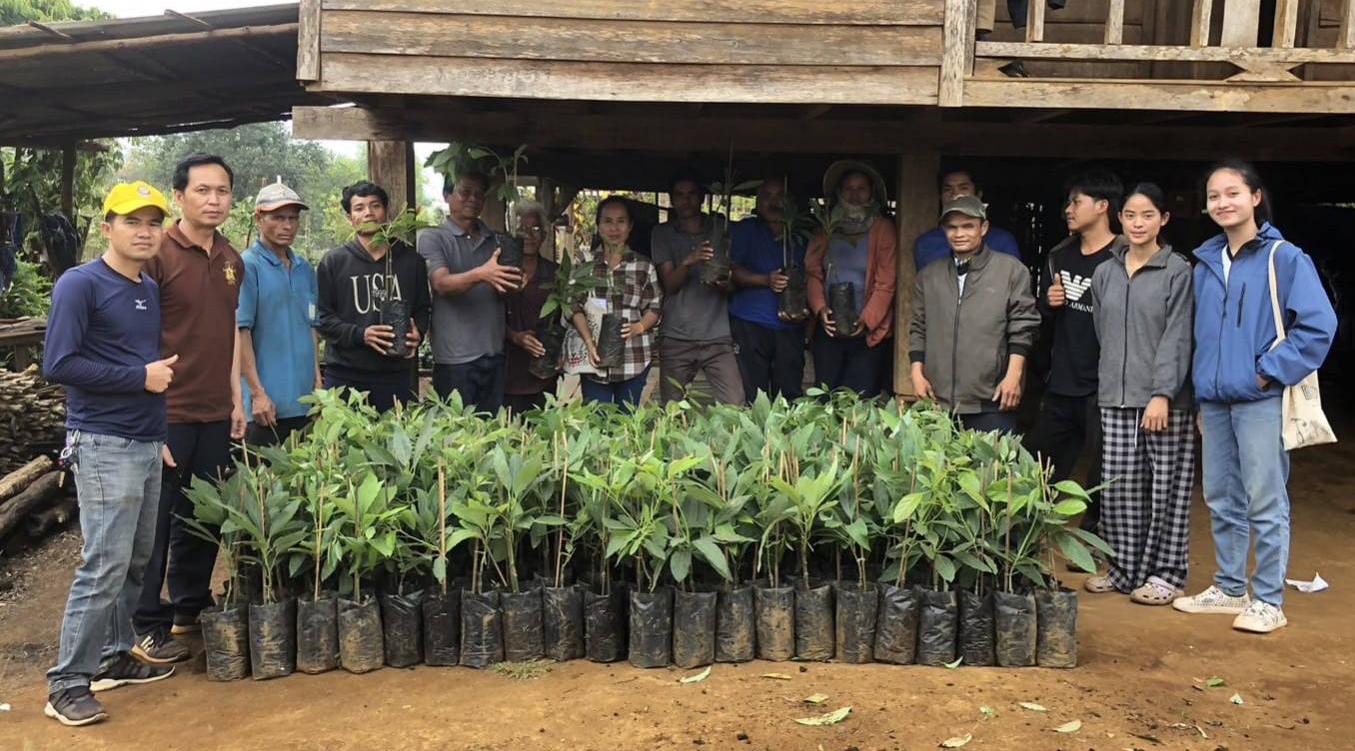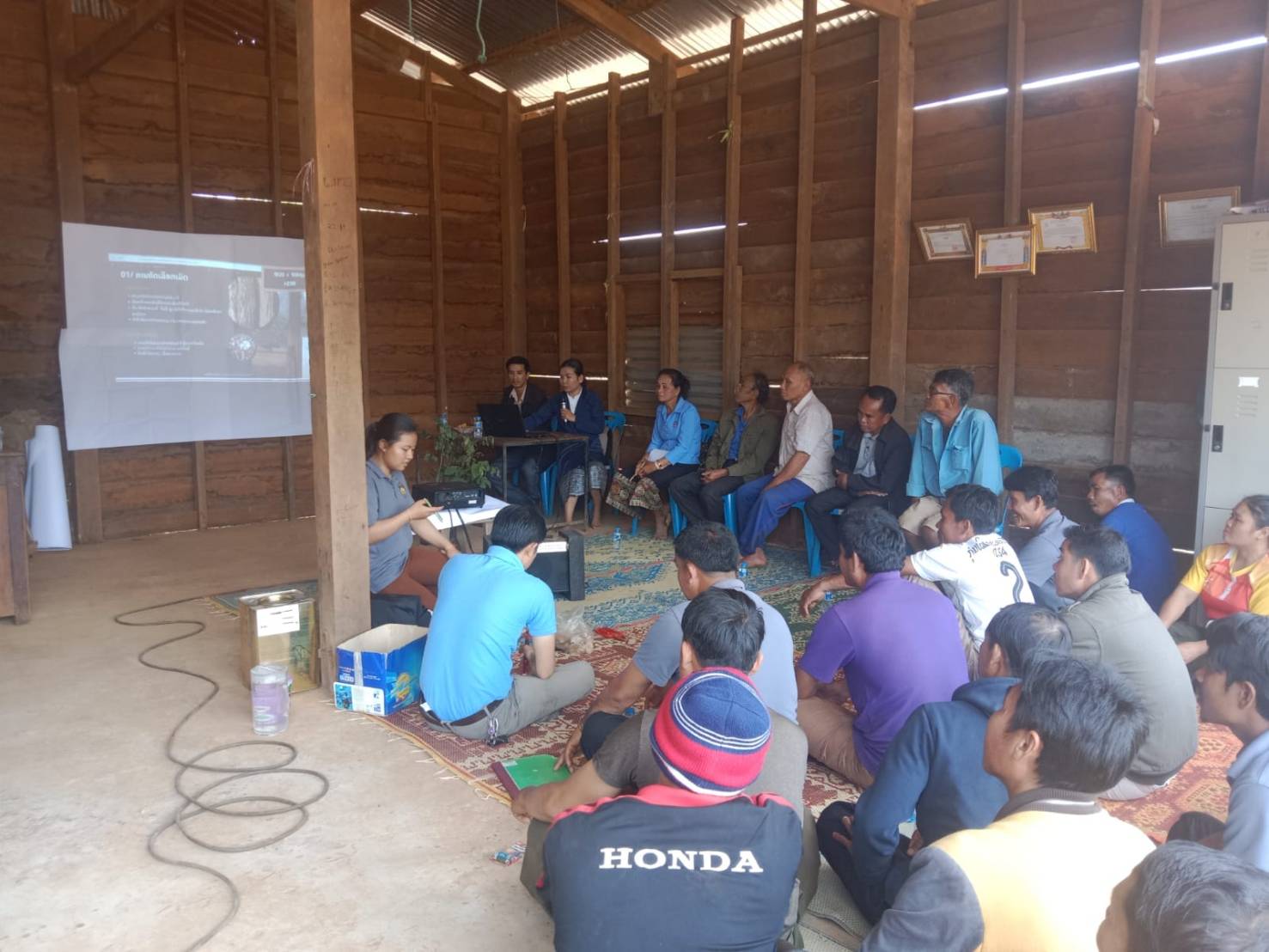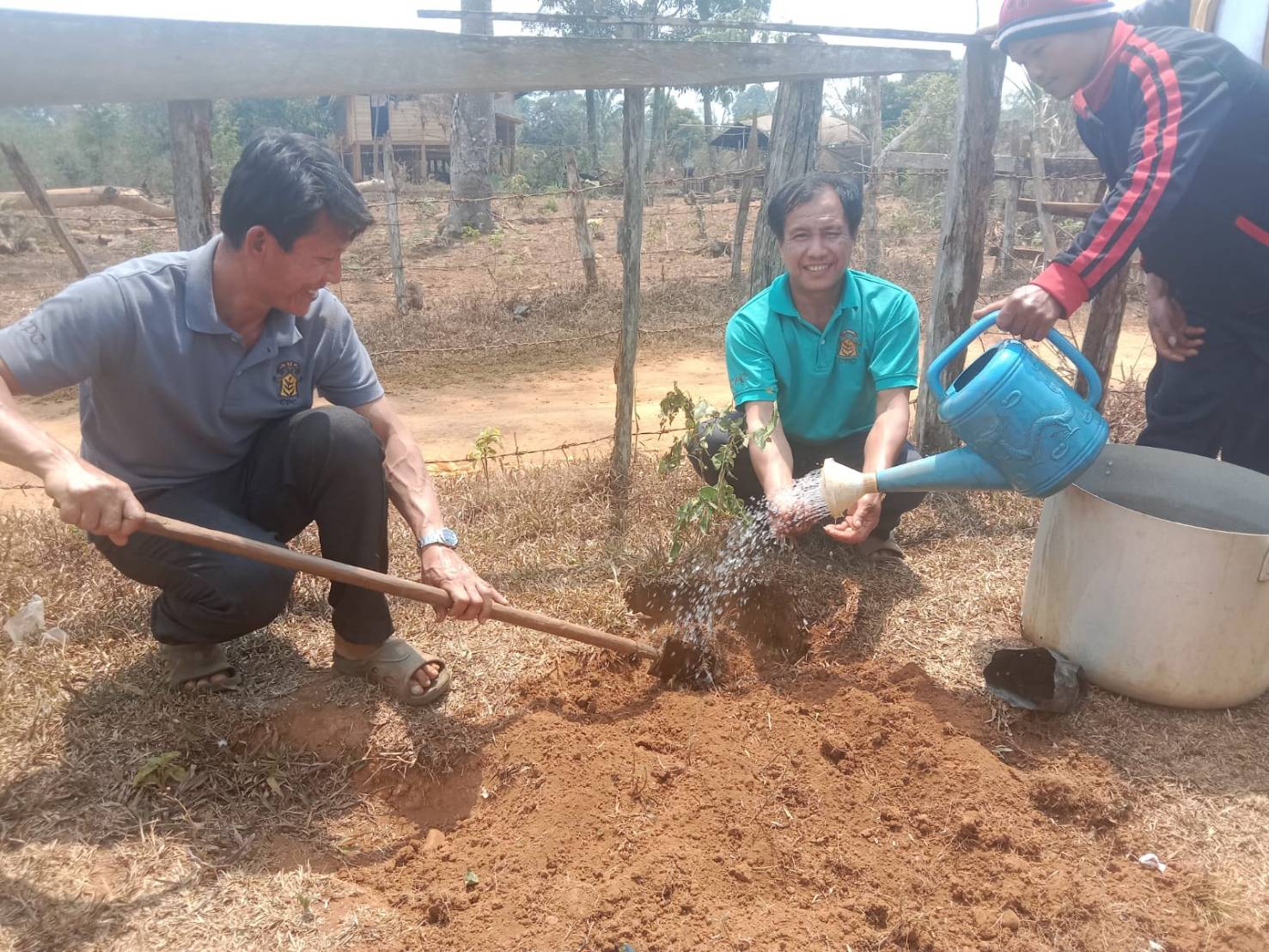The Coopérative des Producteurs de Café du Plateau des Bolovens (CPC), comprising 1,855 farmer families, is known for producing organic Fairtrade coffee for the European market. However, the devastating effects of climate change have wreaked havoc on coffee production which has an adverse impact on the socio-economic conditions of our farmers. Hence, the Climate Resilience Coffee Farming Project was developed with an aim to enhance climate resilience, productivity, and quality of Arabica Coffee cultivated in Lao People’s Democratic Republic. This Project was implemented by Fairtrade NAPP under the Fairtrade Coffee Development Plan ( CDP) and co-funded by Max Havelaar Switzerland and CPC.

This project involves planting trees in coffee plantations and specifically targets CPC members from three villages: Maisaysomboun and Somsanouk in Paksong District, Champasak Province, and Nambeng Village in Laognam District, Saravane Province. A total of 24,700 trees from 13 different species have been provided to 80 families to integrate these trees into their coffee plantations.
The Climate Resilience Coffee Farming Project aims to achieve the following objectives:
1) Enhance the ecological system in the coffee area by transforming sunny coffee sites into shaded coffee environments. The introduction of shade trees creates a cooler and more humid microclimate for coffee plants. Additionally, the shade trees contribute to natural biodiversity within the agricultural area, supporting and preserving the diversity of animals and plants.
2) Conserve the endangered native plant species, Hopea Odorata, through the implementation of the project. By incorporating this species into the coffee plantations, the project contributes to the conservation of this valuable species.
3) Contribute to climate change mitigation efforts by increasing carbon sequestration. The addition of trees to coffee plantations enhances carbon capture, assisting in the reduction of greenhouse gas emissions and combating climate change.
4) Improve the quality and quantity of coffee produced to meet the requirements of the high-end market. By implementing appropriate farming practices and incorporating shade trees, the project aims to enhance overall coffee production, ensuring that it meets the standards demanded by the premium market.
5) Enhance the living conditions of coffee growers through the provision of premium coffee prices and additional income from crop diversification. By focusing on the cultivation of high-quality coffee and exploring other crops such as avocado and jackfruit, the project seeks to improve the financial well-being of coffee farmers, providing them with sustainable income opportunities.

In order to accomplish these objectives, two training sessions were conducted to enhance the members’ capabilities in integrating tree planting with coffee cultivation and to provide them with monitoring and maintenance techniques. A total of 85 participants attended the sessions, including 22 women where training sessions were conducted in three villages. Members were also advised on monitoring techniques and evaluating the growth of different tree species, with regular reporting to the technical staff. To ensure the progress of the project, field technicians were assigned the task of monitoring the tree-planting activities in the three targeted villages.
By integrating shade trees, mitigating climate change and enhancing the livelihoods of coffee growers, this project is transforming the lives of our farmers and safeguarding the future of coffee farming. Together, these challenges posed by climate change can be overcome and build a resilient future for tomorrow.





